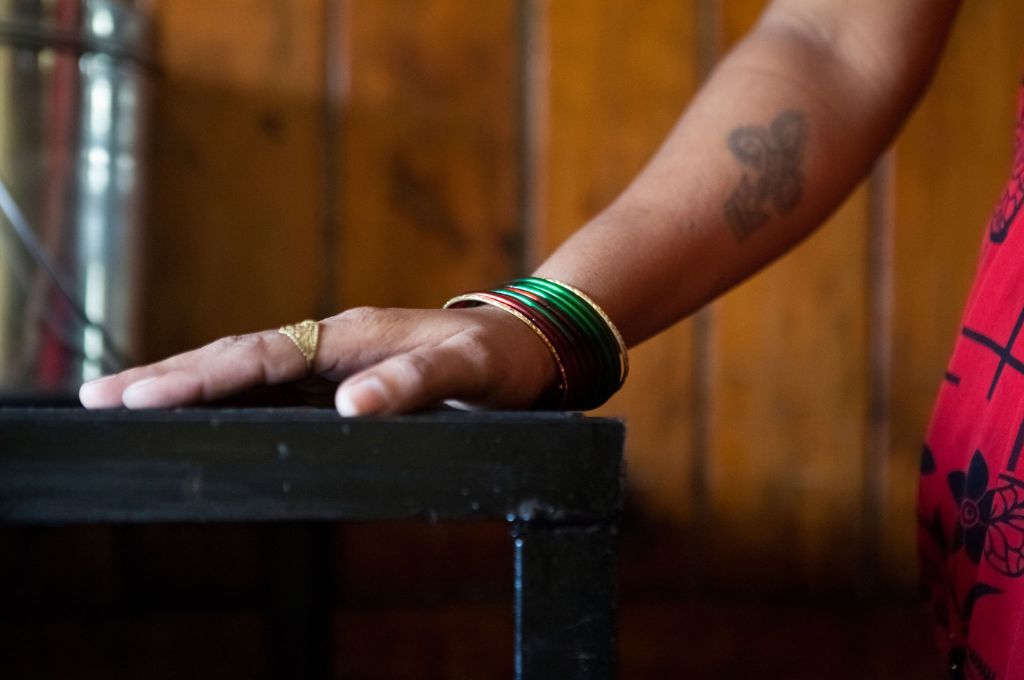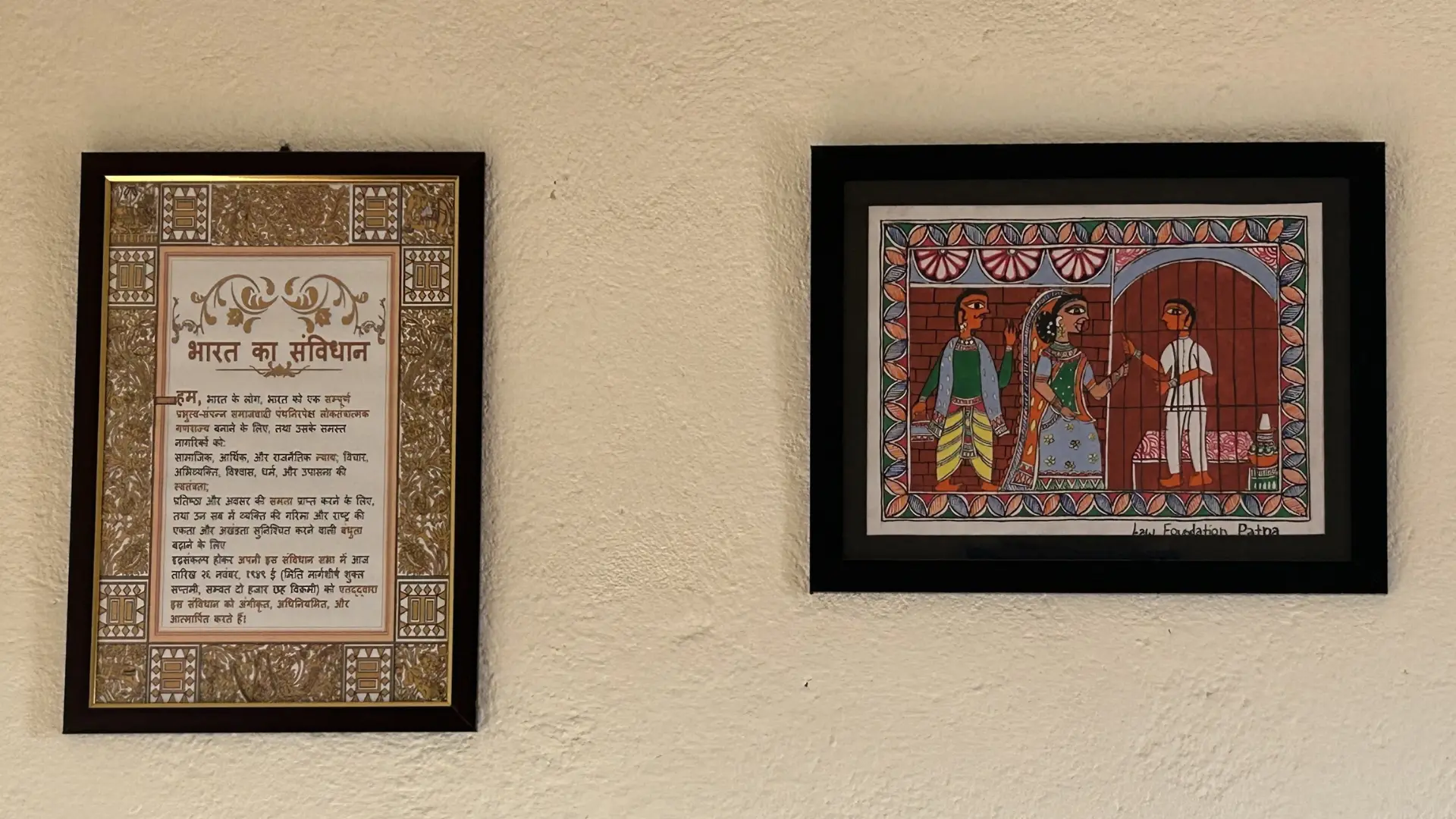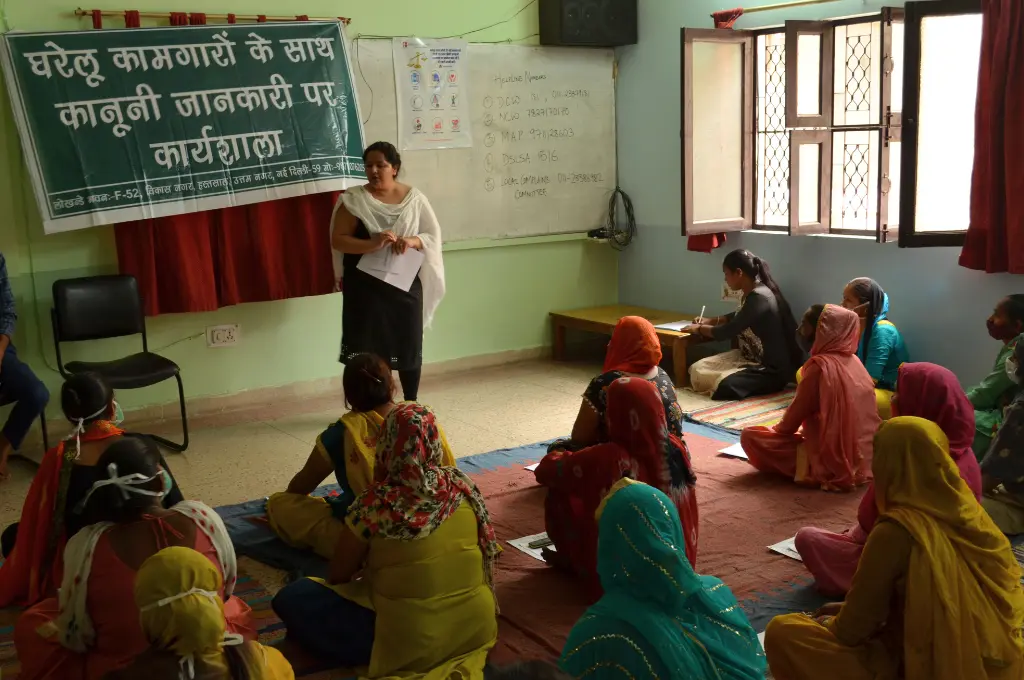The NCRB report 2020 lists a total of 6,616 cases of human trafficking in India, with states such as West Bengal and Andhra Pradesh being the biggest contributors to this number. Grassroots activists working against trafficking share an even more grim picture—most trafficking cases are not reported due to stigma and fear of the traffickers, or get reported under the section of ‘missing persons’. The problem is much bigger, and the nexus between traffickers, local politicians, and the landed class provides traffickers impunity and allows human trafficking to be an organised crime.
In 1998, French sociologist Michel Foucault changed the way we look at power. He wrote that wielding power was not simply episodic or periodic acts of tyrants; it was diffused in everyday life and perpetuated through everyday interactions and by the institutions in a state. More often than not, power is created, reinforced, and redefined through commonly accepted systems of knowledge, often called ‘truth’. Simply speaking, what constitutes ‘truth’, what is considered ‘knowledge’, who creates this ‘knowledge’, who distributes it, and who has access to this ‘knowledge’ is decided by those who have power.
Historically, the marginalised, the oppressed, and the downtrodden in any society have had very little access to forms of knowledge and no say in constituting the ‘truth’ of that society. In fact, the oppressor community decides the ‘truth’ for the marginalised one. Consider the examples of upper-caste academics studying caste in Dalit communities, or academics from urban areas doing ‘rural immersions’ and writing expert opinions on rural communities. In most cases, the involvement of these communities in that research is minimal. Then what are the possible implications of research carried out by outsiders to a community? A researcher who does not belong to the community they are studying runs the risk of presenting a single narrative and reinforcing the existing unequal power structure, more so if the study is non-participatory. It is not uncommon to see upper-caste researchers representing Bahujan communities either through the lens of torture and abuse or within conversations around reservation. Similarly, the representation of the queer community is often through the lens of acceptance/unacceptance from the heteronormative world.
Knowledge systems that govern sex trafficking research
The public imagination around sex workers or survivors of sex trafficking is also burdened with imagery of abuse. It is overshadowed by pity and viewing survivors as powerless victims. Sex trafficking narratives in the media as well as in academia move around the triangle of the victim–perpetrator–saviour, with survivors occupying the ‘victim’ position and nonprofits or the government invariably owning the ‘saviour’ position. This victim–savior dichotomy steals the authentic voice of survivors and invalidates their lived experiences. So what happens when survivors of sex trafficking assert their voice, break the tightly guarded bastion of ‘research’, and assert their position as experts who have in-depth knowledge about trafficking? New knowledge systems that are participatory and rise directly from the experiences of survivors are built, and the traditional power dichotomy between the researcher and the ‘researched’ is shaken.
Grassroots activists in West Bengal have observed that when survivors take the lead in accessing justice for themselves, there are ripple effects of change throughout the system.
The collectivisation efforts of survivors is one example of this. Through this process of collectivisation, the group can significantly impact the trafficking nexus from within and demand accountability from the system. Grassroots activists in West Bengal have observed that when survivors take the lead in accessing justice for themselves, there are ripple effects of change throughout the system. The creation and growth of survivors’ groups in states such as West Bengal, Chhattisgarh, and Andhra Pradesh aims to strengthen their voices through peer support. These collectives not only support each other to access justice, but also work extensively in the community to spread awareness about human trafficking and allied issues such as child marriage, child abuse, domestic violence, and child labour. The Indian Leadership Forum Against Trafficking (ILFAT), formed by members of these collectives, is the first nationwide forum for survivors of trafficking and sex workers from marginalised communties, and advocates actively with policymakers and politicians for the passing of the Trafficking in Persons Bill, 2021.

Why research led by survivors is more informed
Time and again survivors from these collectives have spoken out against dominant narratives about them, emphasising that any decision to combat human trafficking needs to include survivors as the primary and expert voice—they’re the ones who have been trafficked and rescued and are struggling for rehabilitation.
In 2019, survivors of sex trafficking from three different survivors’ collectives in West Bengal set out on a daunting task:
- To understand the factors that increase the vulnerability of children to sex trafficking
- To map the children who were at risk of trafficking based on these factors
- To use these findings to seek accountability and access protection from child protection committees across levels of governance under the Integrated Child Protection Scheme (ICPS)
A vulnerability mapping tool was developed and administered on 338 children, covering 112 villages in the districts of North and South 24 Parganas in West Bengal. It found that approximately 197 applications were filed with the village-level child protection committees and 148 applications were filed with the block-level child protection committees. Education, housing, and financial support emerged as the top three factors to reduce vulnerability to trafficking among children.
The role of the survivors of sex trafficking in this action research was crucial for several reasons. First, their lived experiences afforded the survivors in-depth knowledge on the factors that increased vulnerability to trafficking. Second, living in the same community as the vulnerable children they are mapping put them in a position to advocate further for the robust implementation of the ICPS in those communities; they also had a rapport with the families of these children. Moreover, the women from these collectives had been already working closely in their communities to combat child sex trafficking and child marriage, which gave them significant experience and knowledge about these issues.
In 2021, another collective of survivors of sex trafficking in South 24 Parganas of West Bengal conducted a study on the stigma faced by rescued survivors when they return to their communities. They collected data from 60 survivors in their communities. The unique position of these women as survivors of trafficking who had experienced deep levels of stigma allowed them to formulate an effective research design and methodology. They were also able to collect detailed information due to the same.
A collective of survivors of labour trafficking from Chattisgarh are in the process of designing a study to understand labour trafficking vulnerabilities in their villages, especially in the context of the COVID-19 pandemic.
A future with more inclusive research
Today we have a landscape of multiple research studies, assessments, and impact studies conducted by nonprofits and consulting firms, as well as knowledge-building and theorising by individuals within academia. Against this backdrop, what is the significance of research initiatives taken by survivors’ collectives?
In academia, a privileged minority acts as the gatekeeper and decides ‘what can be considered research’.
In this highly unequal world, where the rich and the powerful control systems of knowledge and have a dangerous monopoly over public opinion, norms, moral thought, and ‘truth’, the act of creating novel forms of knowledge is a revolutionary one. In academia, a privileged minority acts as the gatekeeper and decides ‘what can be considered research’. The collective research being carried out by survivors’ groups in West Bengal and Chhattisgarh breaks the hegemony of academia and charts new paths of creating knowledge.
The women in these collectives are demonstrating courageous forms of leadership and trying to emerge as ‘experts’ within the anti-human-trafficking ecosystem. It is now our responsibility to loosen the thorny boundaries around ‘research’ and welcome them with open arms.
—





